Việt Dũng
The mountainous district of Trạm Tấu in Yên Bái Province has achieved success over the past 75 years since it started implementing later President Hồ Chí Minh’s teachings to popularise the Vietnamese language and basic knowledge among local ethnic groups.
This knowledge has changed local life forever.
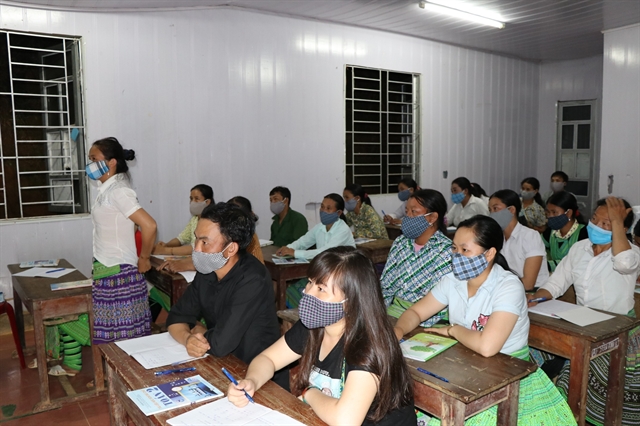
Adults in an evening class in Trạm Tấu District. VNA/VNS Photo Việt Dũng
Chớ A Páo, a teenager from Xà Hồ Commune, Trạm Tấu District, studied back in 1992, and decided to continue his learning. Rising from someone who was basically illiterate, he is now of the most educated people in the area. He is trusted by locals and has been appointed to important positions of authority in the district.
He is now Party Secretary of Bản Công Commune, Trạm Tấu District.
“Learning how to read and write is like opening a new horizon, from where one has access to knowledge that can be applied in daily life,” he said.
Páo said as a man who graduated from a local class, he considered the task of teaching the Vietnamese language to the local Mông ethnic group was crucial for the region’s development.
Many people who were interested in learning had gone on to hold important leading positions in the community.
“I hope the Party and the State will continue to open more classes for locals to learn the Vietnamese language and gain knowledge about other fields of society,” he said.
Tráng Thị Di, nearly 70, from Tấu Dưới Village in Trạm Tấu District, is fairly smart in comparison with other elders of the same age in the area.
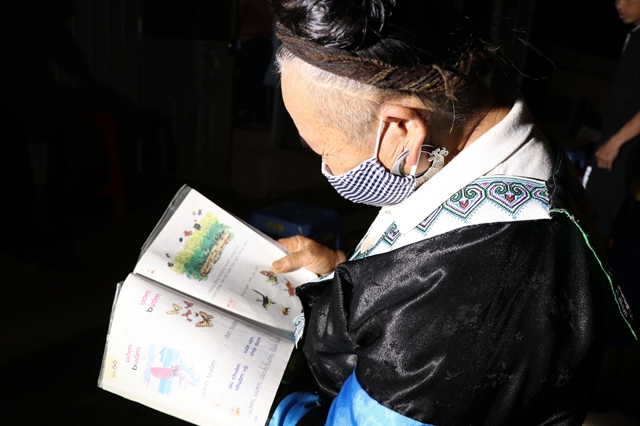
Tráng Thị Di has led the local Women's Union for nearly 30 years. VNA/VNS Photo Việt Dũng
Di sat for evening class when she was young. Then she was promoted to the post of chair person of the commune’s Women Union and has held the post for 27 years now.
“I learned to read and I understand more,” she said. “Now when I explain something, locals listen to me and follow my guidance.”
“With this knowledge, I can spread State policies for local women more effectively,” she said.
Teacher Ngô Ngọc Năm, from Trạm Tấu Commune’s Boarding School for Ethnic Groups said he had encouraged villagers to sign up for adult evening classes.
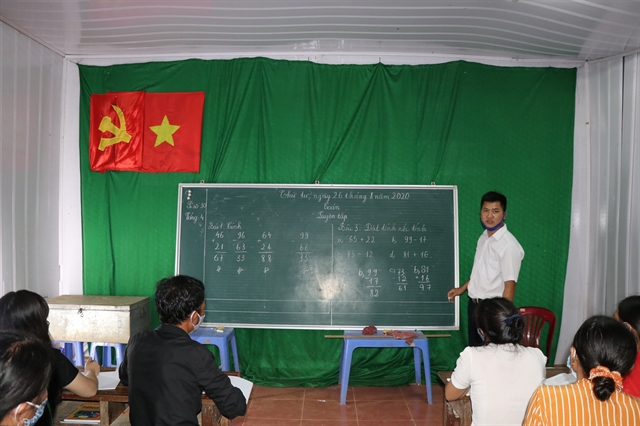
Teacher Ngô Ngọc Năm teaches maths at an evening class. VNA/VNS Photo Việt Dũng
Besides teaching, he also visits locals to understand their hardships and find solutions to help them farm more productively and lead a hygienic life.
Thousands of evening classes for adults have been started over the years to teach thousands of people how to live. Thanks to these classes, many depraved customs have been eradicated.
People have learnt modern methods of farming, and applied advanced technology in cultivating and raising cattle and poultry.
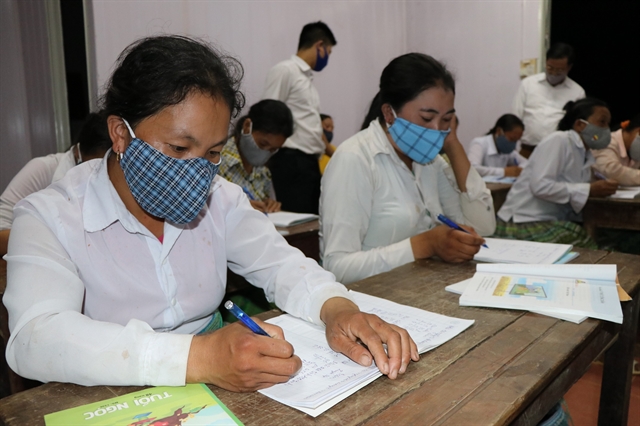
Locals who did not attend school at young age can join evening classes to equip themselves with basic knowledge. VNA/VNS Photo Việt Dũng
However, some people still forget how to read and write, and others simply don't attend school.
According to statistics, in 2016 the rate of illiterate people aged from 15-25 was 4 per cent, while the 15-35 age group was 11.5 per cent. The rates in 2019 had dropped to 2.34 per cent and 7.7 per cent, respectively.
Khang A Chua, deputy chairman of Trạm Tấu District’s People’s Committee, said the rate of illiteracy among the 15-25 and 15-35 age groups remained high in comparison with other localities.
“We have defined these age groups as in need of special attention as they account for the main workforce in the area,” he said.
Authorities plan to co-operate with the local education sector to open more adult literacy classes in the near future. VNS
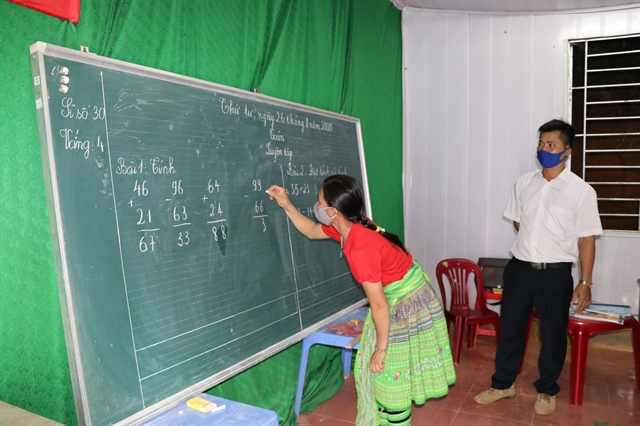
Knowledge has helped improve the local workforce. VNA/VNS Photo Việt Dũng
OVietnam